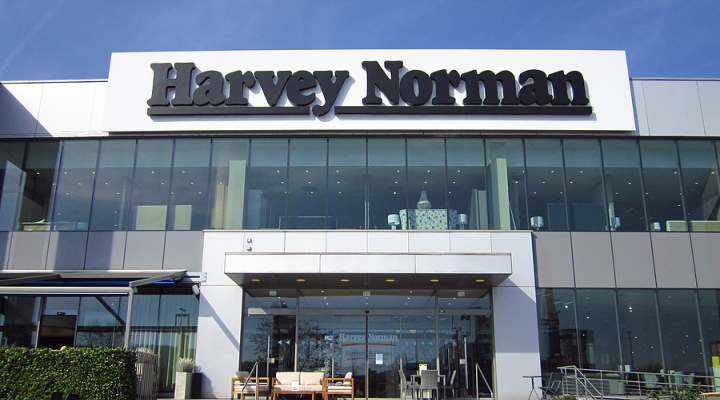If you’re looking for a clear example of how a retail brand should never act, look no further than furniture and electricals giant Harvey Norman. The brand has found itself in the middle of a blazing PR firestorm after it mocked an ex-employee’s claim that the business drove them to consider suicide, blocked a wide range of users from accessing its Twitter account, and then deleted its account entirely. At the time of writing, there has been no apology, no acknowledgement of the situat
uation, nor a single word of explanation to the media. The silence from Harvey Norman is more than just a PR disaster, but the symptom of a wider problem.
What went down
But first, let’s take a quick look back at the original offending tweets, in order to better understand where they stemmed from. It all started with a tweet from user @sisyphysical, which read: “Lol @harveynormanau blocking people for talking about the wage strikes. Working for your godforsaken company drove me to suicide in 6 months. To the 50 people paid $200k a year to manage to one account – go f*ck yourselves. I know you do, that Sydney conference is a f*ucking mess.”
The Harvey Norman account replied: “🤦♂️👋”.
It followed up with a response to another incensed Twitter user with the kissing emoji, and then blocked various users, including the Australian Council of Trade Unions, along with its secretary, Sally McManus; the Victorian minister Martin Pakula and the federal Greens leader, Adam Bandt.
A few days later, Harvey Norman deleted its Twitter account entirely.
The tweet from @sisyphysical was referencing staff protests that were triggered after Harvey Norman said it would not return $14.5 million in taxpayer-paid JobKeeper funds, despite company profits increasing by 116 per cent during the pandemic. Staff protested outside Harvey Norman stores across the country, demanding wage increases in line with the company’s record-breaking profit increase during the pandemic.
At the time of writing, Harvey Norman’s share prices have dipped from $5.39 to $5.19. The hashtag #BoycottHarveyNorman was trending on Australian Twitter for several days, and will live on forever. At the click of a button, anyone can see a stream of reasons why they should stay away from the retailer, and provide a compelling case for why potential customers should refuse to give them a single cent.
Harvey Norman’s media response has still been utterly lacking. The original tweet response was posted on the 28th May, and almost a week later, there has been radio silence – save deleting its Twitter account.
Silence is not golden
When a business is silent in the days following a crisis, people will always fill that silence with negative implications, assumptions or even inaccurate assertions. The retailer’s silence makes it seem like it’s hiding from the problem rather than facing up to any kind of responsibility. Or worse, that it does not believe it has a big problem and shows little regard for how its actions (and inaction) affects others.
By apologising and explaining immediately, Harvey Norman could have put itself in a better position to take control of the situation. Silence is a lot harder to forgive, especially when you’re already in hot water.
Harvey Norman clearly fails to understand the impact its actions are having on its customers, and ultimately, its bottom line. Share price is not just a matter of balance sheets and profit and loss statements, because the market is based heavily on perception.
Perception impacts loyalty, which impacts spending, which ultimately impacts share price. Goodwill, perception, and reputation are incredibly important. Being a long-standing brand, or having competitive prices are no longer enough to create a preference for Harvey Norman’s brand.
As things stand, Harvey Norman has firmly placed itself in the category of businesses that are intent on bulldozing their way to success, no matter who they hurt along the way. If they rely on goodwill in order to do business, then they are undoubtedly going to suffer.
Harvey Norman cannot expect to continue business as usual. That’s simply not how the market works, and the sooner it realises that, the better. The business impact of this crisis will be far-reaching. Partners and sponsors will be forced to reconsider their relationship with the business, or risk supporting a business that doesn’t appear to care about the health or wellbeing of its staff.
Staff retention and performance will be impacted, and the retailer will undoubtedly struggle to attract the very best talent. A good comms strategy must involve both internal and external communications, ensuring that all layers of a business are communicating well with one another. If a business doesn’t have a good relationship with its employees, that negativity will ultimately rub off on customers and affect sales, especially in a customer-facing retail business.
The impact of this crisis will not only impact Harvey Norman, but it will have a trickle-down effect on retailers as a whole. The more this kind of bad behaviour happens, the less tolerance and forgiveness there will be. Retailers must be incredibly wary of cancel culture, and understand the long-term reputational impact that these kinds of sagas can have on a business – no matter how well-established your brand.

